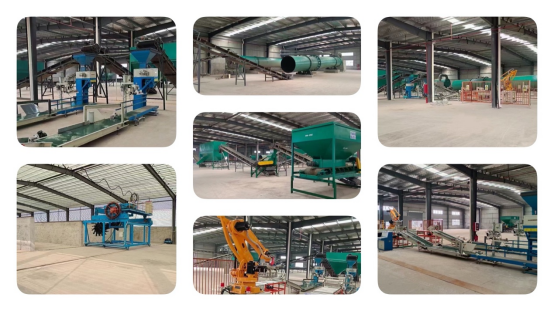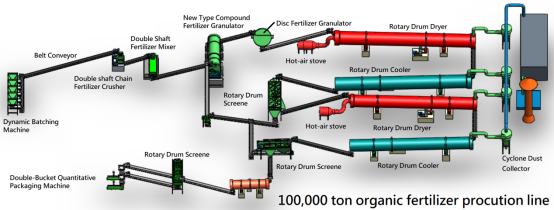PROFILE
Nowadays, starting an organic fertilizer production line under the guidance of right business plan can improve supply of non-harmful fertilizer to farmers, and it has been found that the benefits of using organic fertilizer are far outweigh the cost of organic fertilizer plant setup, not only referring to economic benefits, but also including environment and social efficiency. Switching organic wastes to organic fertilizer can help farmers to extend soil life, improve water quality, boost crop production and eventually increase their yields. Then it is of the essence for investors and fertilizer manufacturers to learn how to make waste into fertilizer and how to start organic fertilizer business. Here, YiZheng will discuss the points that need attention from the following aspects when starting organic fertilizer plant.
Why To Start Organic Fertilizer Manufacturing Process?
Organic Fertilizer business being profitable
Global trends in the fertilizer industry point to environmentally safe and organic fertilizers that maximize crop yields and minimize lasting negative impacts on the environment, soil and water. Another side, it is well known the organic fertilizer as an important agriculture factor has a huge market potential, with the development in agriculture, the benefits of organic fertilizer are increasingly conspicuous. In this view, it is profitable and feasible for entrepreneur/investors to start organic fertilizer business.
Government support
In recent years, governments have provided a series initiative support for organic farming and organic fertilizer business, including target subsidies, market investments, capacity expansion and financial assistance, all of which can promote the wide use of organic fertilizers. For instance, Indian government offers the promotion of organic fertilizer up to Rs.500/per hectare, and in Nigeria, the government is committed to taking the necessary steps for promoting the use of organic fertilizer in order to develop Nigerian agriculture ecosystem for creating sustainable jobs and wealth.
Awareness of organic food
People are becoming more aware of the safety and quality of the daily food. The demand for organic food has grown in the past ten years in a row. It is fundamental to protect food safety through using organic fertilizer to control the production source and avoid soil pollution. Therefore, the increasing of consciousness for organic food is also conducive to the development of organic fertilizer production industry.
Plentiful raw materials of organic fertilizer
There are large volumes of organic waste are generated daily all over the world. Statistically, there are more than 2 billion tons of waste globally each year. Raw materials for producing organic fertilizer are plentiful and extensive, such as agriculture wastes, like straw, soybean meal, cottonseed meal and mushroom residues), livestock and poultry manure (like cow dung, pig manure, sheep muck, horse dung and chicken manure), industrial waste (like vinasse, vinegar, residue, cassava residue and sugarcane ash), household garbage (like food waste or kitchen garbage) and so on. It is the plentiful raw materials that makes organic fertilizer business popular and prosperous in the world.
How to choose the site location
Proposed Site of Organic Fertilizer Plant
The choice of site location for organic fertilizer plant should follow the principles:
● It should be situated in close proximity to the supply of raw materials for organic fertilizer production, aiming at reducing transport cost and transportation pollution.
● Factory should be located in area with convenient transportation so as to reduce logistical challenges and transport cost.
● The proportion of plant should satisfy the requirement of production technology process and reasonable layout and leave appropriate space for further development.
● Keep away from residential area to avoid affecting the lives of residents because there more or less special odor generated during the process of organic fertilizer production or raw materials transportation.
● It should be located in places that are flat region, hard geology, low water table and excellent ventilation. In addition, it should avoid places that prone to slides, flooding or collapse.
● The site should be adapted to local conditions and land conservation. Make full use of idle land or wasteland and does not occupy farmland. Use the original unused space as much as possible, and then you can reduce investment.
● The organic fertilizer plant is preferably rectangular. Factory area should be about 10,00-20,000㎡.
● The site cannot be too far away from the power lines in order to reduce power consumption and investment in the power supply system. It should be near water supply so as to meet the needs of production, living and fire water.
In a word, the source materials require to establish the industry, especially poultry manure and plant waste, should be really available from market place and poultry farms in close proximity to the proposed plant.
Post time: Jun-18-2021



